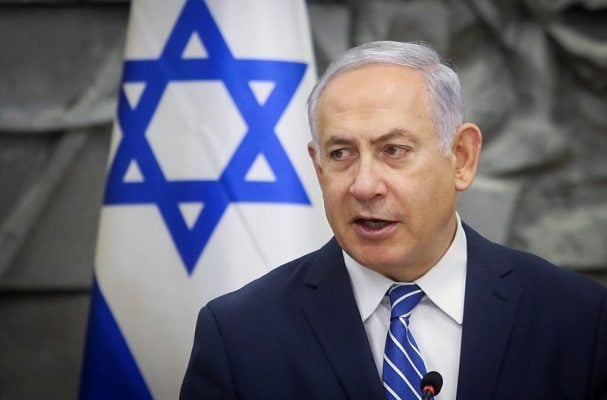The Israeli government announced an agreement with the UN to resettle African migrants in Western countries instead of African destinations Monday afternoon. However, after protests from right-wing coalition partners, Netanyahu said he’s suspending the deal.
By AP and World Israel News
The Israeli government announced Monday that it had reached a landmark agreement with the United Nations to scrap its contested plans to deport African asylum seekers and will resettle more than half of them in Western countries instead. Later in the evening, after protests from right-wing coalition partners, Prime Minister Benjamin Netanyahu suspended the deal, explaining that he was attentive to the concerns of southern Tel Aviv residents, where the majority of illegal migrants live.
Earlier in the day, Netanyahu’s office said the “unprecedented understandings” with the UN refugee agency would send more than 16,000 migrants – about half of those in Israel – to various Western countries that were willing to absorb them. The deal would be implemented in three stages over five years, with much of those remaining in Israel integrated and granted official status.
‘It’s a good agreement’
“It’s a good agreement,” Prime Minister Benjamin Netanyahu told reporters at the time. “It enables us to solve this problem in a way that serves, protects the interests of the state of Israel and gives a solution to the residents of southern Tel Aviv and other neighborhoods, and also for the people who came into Israel.”
The Africans, nearly all from dictatorial Eritrea and war-torn Sudan, say they fled for their lives and faced renewed danger if they returned. Israel has said it considers the vast majority of the 35,000-40,000 migrants to be job seekers and has said it has no legal obligation to keep them.
The illegal migrants started moving toward Israel in 2005, after neighboring Egypt violently quashed a refugee demonstration and word spread of safety and job opportunities in Israel. Tens of thousands crossed the porous desert border before Israel completed a barrier in 2012 that stopped the influx. But Israel struggled with what to do with those already in the country, alternating between plans to deport them and offering them menial jobs in hotels and local municipalities.
The poorer neighborhoods of south Tel Aviv have become home to a huge number of Africans, and the residents there have complained and demonstrated against their presence due to the subsequent higher rates of violence and sexual assaults that have left them feeling unsafe and yet trapped as their property values have plummeted. Thousands of the migrants concentrated in neighborhoods in south Tel Aviv, where ethnic food shops and phone card stalls line the streets, and the area has become known as “Little Africa.” This has sparked tension with the working-class Jewish residents who have been putting pressure on the government to find a solution.
Netanyahu’s office said that legal obstacles and ensuing problems with the proposed third-country African destinations forced the government to amend its plans and come to an agreement under UN auspices. It says the new framework will include a development and rehabilitation plan for southern Tel Aviv.
‘Tremendous pressure’ on Rwanda to cancel plan
However, several hours after announcing the agreement, Netanyahu suspended the deal, explaining the “sequence of events” in a Facebook post.
“Over the past two years I have been working with Rwanda so that it will serve as a ‘third country’ that would absorb the infiltrators who will be deported without their consent. This is the only legal way for us to remove infiltrators without their consent, after the rest of our moves have been legally disqualified. Rwanda agreed to this and began the deportation operation,” the prime minister wrote.
“In recent weeks, with the tremendous pressure placed on Rwanda by the New Israel Fund and elements in the European Union, Rwanda has withdrawn from the agreement and has refused to absorb infiltrators from Israel who were forcibly deported. In this situation, I decided to strive for a new agreement that would still allow the continued removal of the infiltrators,” he said.
“However, I am attentive to you first and foremost, to the residents of South Tel Aviv. So I decided to meet with Interior Minister Aryeh Deri with representatives of the residents tomorrow morning. In the meantime, I am suspending the implementation of the agreement, and after I meet with the representatives, I will bring the agreement up for a new examination,” he concluded.





